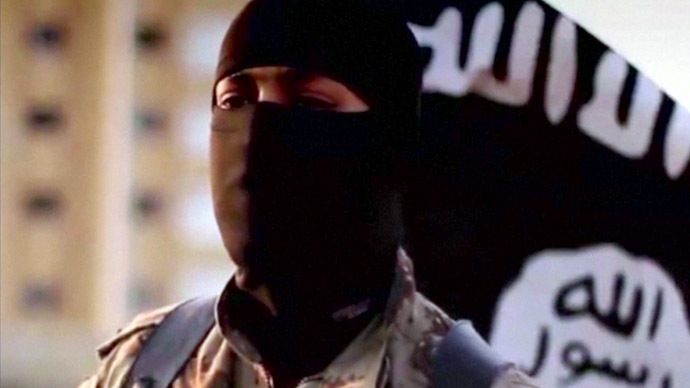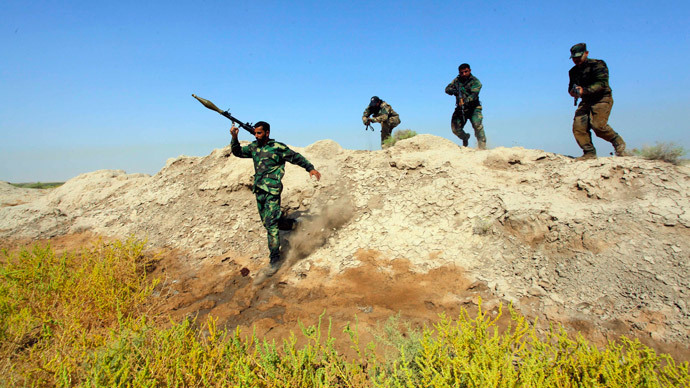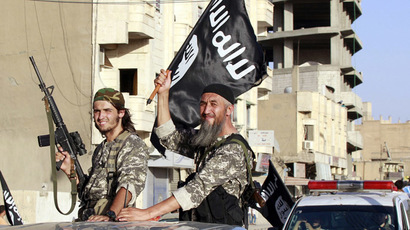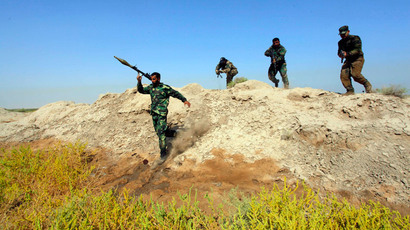UK finally sanctions Qatari terror funder – 10 months after US

The UK has added a Qatari financier to its sanctions list - 10 months after he was blacklisted as a ‘global terrorist’ by the US. The British government now faces scrutiny over its sanctions regime and calls to tighten up.
Abd Al-Rahman Bin Umayr Al-Nuaymi is accused of sending £1.25 million ($2.1 million) a month to jihadists in Iraq at one stage, as well as £375,000 ($603,466) to an Al-Qaeda-linked group in Syria. He also sent money to Al-Shabaab in Somalia and other terrorist groups in the Middle East. Al-Nuaymi was at one time an advisor to the Qatari government, the Sunday Telegraph reports.
The decision 10 days ago by the UK Treasury to slap sanctions on Al-Nuaymi means any of his assets in the UK will be frozen, and British banks or foreign banks with offices in the UK will be barred from doing business with him.
The move follows the Stop the Funding of Terror Campaign by the UK newspaper, the Sunday Telegraph. It’s designed to make government ministers turn the screw on Qatar and other Gulf states accused of turning a blind eye to their citizens accused of funding terrorism.
The US sanctioned Al-Nuaymi in December last year and branded him a “global terrorist”. The British government’s comparatively tardy response has led to questions. MPs have warned the delay in barring terrorist financiers from Britain could mean others have slipped under the radar.
Al-Nuaymi was “considered among the most prominent Qatar-based supporters of Iraqi Sunni extremists” and “reportedly oversaw the transfer of over $2 million per month to Al-Qaeda in Iraq for a period of time,” said the US Treasury Department.
Al-Nuaymi is by no means an isolated case: five other Qataris have been blacklisted by the US, but are still free to do business in the UK and use British banks.
READ MORE: RT exclusive: From London banker to ISIS militant - one man's terror trail
READ MORE: US imposes anti-terror financial sanctions on 21 individuals, 3 companies
The Prime Minster David Cameron has come under pressure in recent days to deal with the UK’s lax sanctions regime. During a meeting of Conservative MPs on Tuesday night, Cameron said it was “unequivocal” that there should be no differences between the US and UK anti-terrorist sanctions.
But the Treasury select committee is considering if a full investigation needs to be launched into why the UK has not properly sanctioned the Qatari terrorist financier, The Telegraph reports.
The spotlight is on the commercial secretary of the Treasury, Lord Deighton, who as well as overseeing the sanctions regime is also leading efforts to attract investment to the UK from Qatar, Kuwait and other wealthy Gulf States.

Qatar owns Harrods, the famous London department store, and co-owns the London Shard, Western Europe’s tallest building.
A series of investigations by the Sunday Telegraph have revealed that Gulf states, which have major trade links to Britain, have been “turning a blind eye” to individuals thought to finance jihadists, some of whom have close links to the regimes of these countries.
But whereas seven of these individuals have been blacklisted by the US, only two of them have been added to the UK Treasury’s sanctions list.
Stephen Barclay, a Conservative MP, has written to the prime minister’s chief of staff Ed Llewellyn to explain the situation. Llewellyn apparently agreed to examine the situation.
“Parliament does need to be told why a known funder of global terrorism, on whom there was already considerable evidence, was not included in the UK sanctions list for 10 months,” wrote Barclay.
Labour MP John Mann went further and suggested Lord Deighton’s responsibilities should be split, so he was no longer trying to attract billions of investment to the UK from the Gulf, while at the same time overseeing sanctions.
“The roles should be split and the government should give the responsibility for financial sanctions to somebody else,” said Mann.
READ MORE: ISIS daily profits from oil, theft, human trafficking exceed $3mn – report
READ MORE: ISIS ‘making millions’ out of stolen oil revenues in Iraq
A spokesman for the Treasury said most sanctions are imposed through the European Union and the UN. The Qatari government denies it turns a blind eye to terrorist funding.
Khalid bin Mohammed al-Attiyah, the Qatari foreign minister, told the Telegraph he did not “in any way” support those “terrorizing innocent civilians and destabilizing the Middle East.”
He added that the Qatari finance ministry worked closely with other governments and international security forces to counter terrorist financing.














